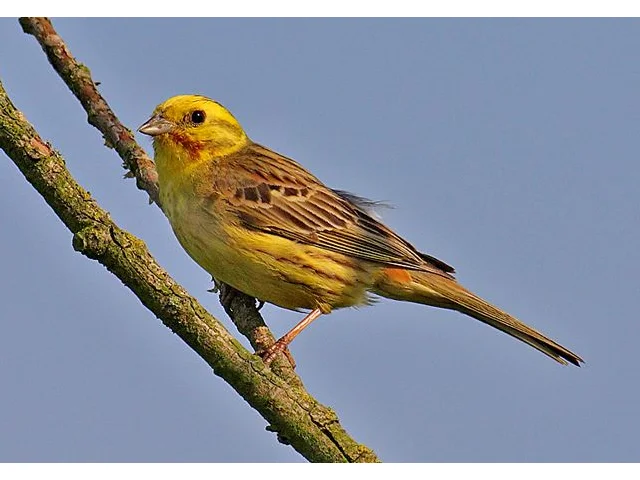BTO appeals for help to save farmland birds
1f17425d-8e2f-4735-b72b-edb45671fb54

The British Trust for Ornithology (BTO) is launching a Farmland Bird Appeal to fund further research into the declines of farmland birds, in a bid to reverse the trends.
Farmland bird declines are not a new problem, but many species such as Skylark and Northern Lapwing are still disappearing, and others such as Yellowhammer and Corn Bunting are showing no sign of recovery. Despite conservation measures implemented to halt their declines, our farmland birds continue to struggle. More research is urgently needed to understand why there has only been limited success so far.
The BTOs want to carry out the second generation of research to find solutions that work for farmland birds and farmers to reverse the declines. We hope to identify how farmland birds are using the agri-environment scheme (AES) measures that have been designed to help them, and find out why they aren't leading to the expected recoveries of farmland bird populations.
How are birds adapting and interacting with changing land-use, climate, predators, competitors, parasites and disease? What is it about some options that produces negative effects on Skylarks? Are features being used as they were designed to be used? What effects are habitat having on productivity of farmland birds?
Using new and novel techniques, such as tracking and camera trapping, and by combining the BTO's traditional strengths of volunteer-led and professional science, they aim to find out.
More than 60 per cent of countryside is farmland. Agri-environment schemes are the approach to providing management schemes to improve the farmed environment. With even less funding available for research and development, the BTO is asking for your help to carry out this work to understand why the AES measures aren't delivering results and find solutions that work for farmland bird species.
Farmland bird declines are not a new problem, but many species such as Skylark and Northern Lapwing are still disappearing, and others such as Yellowhammer and Corn Bunting are showing no sign of recovery. Despite conservation measures implemented to halt their declines, our farmland birds continue to struggle. More research is urgently needed to understand why there has only been limited success so far.
The BTOs want to carry out the second generation of research to find solutions that work for farmland birds and farmers to reverse the declines. We hope to identify how farmland birds are using the agri-environment scheme (AES) measures that have been designed to help them, and find out why they aren't leading to the expected recoveries of farmland bird populations.
How are birds adapting and interacting with changing land-use, climate, predators, competitors, parasites and disease? What is it about some options that produces negative effects on Skylarks? Are features being used as they were designed to be used? What effects are habitat having on productivity of farmland birds?
Using new and novel techniques, such as tracking and camera trapping, and by combining the BTO's traditional strengths of volunteer-led and professional science, they aim to find out.
More than 60 per cent of countryside is farmland. Agri-environment schemes are the approach to providing management schemes to improve the farmed environment. With even less funding available for research and development, the BTO is asking for your help to carry out this work to understand why the AES measures aren't delivering results and find solutions that work for farmland bird species.

